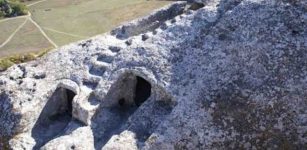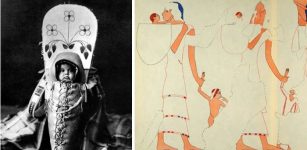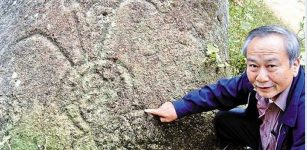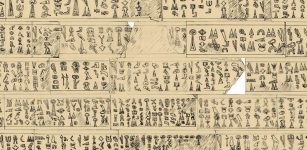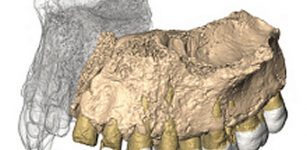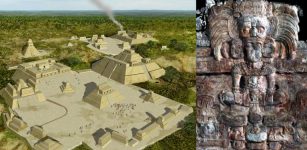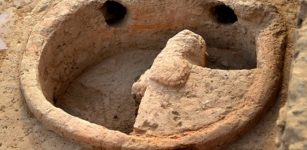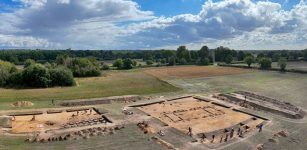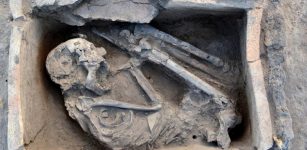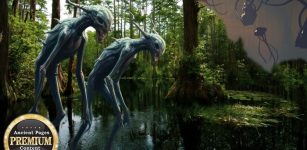Ancient DNA Shows Neanderthals Used Plant-Based Medicine To Treat Pain And Illness
Conny Waters - AncientPages.com - Archaeological discoveries have provided us with plenty of evidence that the Neanderthals were not as primitive as we previously thought.
Scientists have examined ancient DNA found in the dental plaque from four Neanderthals found at the cave sites of Spy in Belgium and El Sidrón in Spain. The study reveals Neanderthals used plant-based medicine to treat pain and illness.
 Some of the Neanderthals were vegetarians. Image credit: Abel Grau/ CSIC Communication
Some of the Neanderthals were vegetarians. Image credit: Abel Grau/ CSIC Communication
The study was conducted by an international team led by the University of Adelaide's Australian Centre for Ancient DNA (ACAD) and Dental School, with the University of Liverpool in the UK.
The four DNA samples range from 42,000 to around 50,000 years old and are the oldest dental plaque ever to be genetically analyzed.
Researchers discovered that the Neanderthals who lived in the El Sidrón Cave were vegetarians. They ate pine nuts, moss, mushrooms, and tree bark. The Neanderthals who inhabited the Spy Cave consumed woolly rhinoceros and European wild sheep, supplemented with wild mushrooms.
So, the two groups had different quite different lifestyles, but both were familiar with the benefits of plant-medicine.
“Genetic analysis of that DNA 'locked-up' in plaque, represents a unique window into Neanderthal lifestyle -- revealing new details of what they ate, what their health was like, and how the environment impacted their behavior.
 Cave El Sidron, Spain. Image credit: Geert De Decker
Cave El Sidron, Spain. Image credit: Geert De Decker
Dental plaque traps microorganisms that lived in the mouth and pathogens found in the respiratory and gastrointestinal tract, as well as bits of food stuck in the teeth -- preserving the DNA for thousands of years," says lead author Dr Laura Weyrich, ARC Discovery Early Career Research Fellow with ACAD.
During the study, researchers encountered something intriguing.
"One of the most surprising finds, however, was in a Neanderthal from El Sidrón, who suffered from a dental abscess visible on the jawbone. The plaque showed that he also had an intestinal parasite that causes acute diarrhoea, so clearly, he was quite sick. He was eating poplar, which contains the painkiller salicylic acid (the active ingredient of aspirin), and we could also detect a natural antibiotic mould (Penicillium) not seen in the other specimens.
"Apparently, Neanderthals possessed a good knowledge of medicinal plants and their various anti-inflammatory and pain-relieving properties and seem to be self-medicating. The use of antibiotics would be very surprising, as this is more than 40,000 years before we developed penicillin.
Certainly, our findings contrast markedly with the rather simplistic view of our ancient relatives in the popular imagination," Dr. Weyrich said.
 El Sidron upper jaw: a dental calculus deposit is visible on the rear molar (right) of this Neandertal. This individual was eating poplar, a source of aspirin, and had also consumed moulded vegetation including Penicillium fungus, source of a natural antibiotic. Credit: Paleoanthropology Group MNCN-CSIC
El Sidron upper jaw: a dental calculus deposit is visible on the rear molar (right) of this Neandertal. This individual was eating poplar, a source of aspirin, and had also consumed moulded vegetation including Penicillium fungus, source of a natural antibiotic. Credit: Paleoanthropology Group MNCN-CSIC
Neanderthals, ancient and modern humans also shared several disease-causing microbes, including the bacteria that cause dental caries and gum disease. The Neanderthal plaque allowed the reconstruction of the oldest microbial genome yet sequenced -- Methanobrevibacter oralis, a commensal that can be associated with gum disease. Remarkably, the genome sequence suggests Neanderthals and humans were swapping pathogens as recently as 180,000 years ago, long after the divergence of the two species.
By studying ancient DNA, it’s possible to learn not only what our ancestors were eating but also find differences in diet and lifestyle that seem to be reflected in the commensal bacteria that lived in the mouths of both Neanderthals and modern humans.
According to Professor Keith Dobney, from the University of Liverpool, “major changes in what we eat have, however, significantly altered the balance of these microbial communities over thousands of years, which in turn continue to have fundamental consequences for our own health and well-being.”
Written by Conny Waters - AncientPages.com Staff Writer


